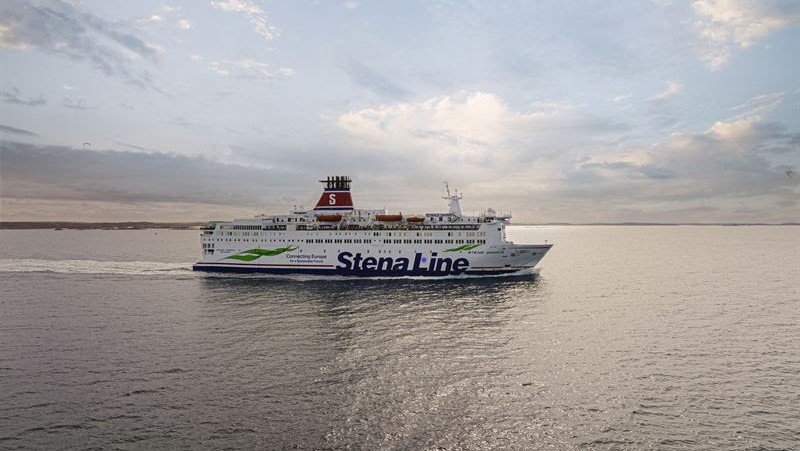Stena Line, one of Europe’s leading ferry companies, can now report a significant reduction in their fuel consumption thanks to their strategic use of AI. Through its advanced Voyage Optimisation System, optimisation of vessel functions can now be done much more efficiently, while resulting in between 1-5% reduction in fuel consumption.
AI is not only used on land, but also at sea. At least at the ferry company Stena Line, where the development and implementation of a new AI system, called Voyage Optimisation System, has been tested on crossings between Gothenburg and the Danish port of Frederikshavn, among others. The use of AI helps to optimise vessel operations by accurately analysing a number of factors that affect the vessel’s voyage, such as wind, waves and depth during the journey, ensuring correct and energy-efficient power output. This data is collected in real time and processed through AI-powered algorithms, thus reducing fuel consumption and securing the operational strategy.
“It is clear that the use of AI both optimises our operations and supports our vision of a more sustainable future. It is positive to see how the technology has not only enabled significant progress in our efforts to reduce carbon emissions and streamline work, but also gives our crew more time to manage day-to-day operations,” said Michael Ljunge, Digital Engineering Manager at Stena Line.
An assistant for shipping
The developers of the AI system work closely with the ship’s crew, both navigators and captains, to continuously receive feedback and make adjustments. This collaboration has proven to be crucial in improving the AI solutions and ensuring its practicality in operations.
“One of the biggest challenges in implementing AI has been ensuring that everyone on board understands how the system works. We originally named the system ‘AI Captain’, but changed this shortly afterwards to avoid misconceptions that AI would replace human decision-making. Instead, the technology is now presented as an intelligent assistant that supports the captain’s and crew’s decisions, which has helped to integrate the AI system in a more natural way and as a tool that complements human expertise and experience,” explains Michael Ljunge.
The increased use of AI and the subsequent efficiency developments are just the beginning. With current technological advances, Stena Line is expected to continue to set the standard for more environmentally friendly and innovative maritime transportation. These developments are also part of Stena Line’s broader strategy to integrate sustainable solutions into all areas of its business, including the company’s travel agency Sembos’ introduction of an AI assistant that streamlines travel planning and booking and transforms the traditional travel industry.
Source: Stena Line.
Tags: AI, Shipping, Stena Line



Recent Posts
Blue Marlin Becomes First Inland Cargo Vessel with Solar-Assisted Propulsion
ABB and Royal Caribbean Partner on 15-Year Deal to Drive Vessel Efficiency and Decarbonization
IET Establishes Centres of Excellence for Green Hydrogen and Electric Vehicle Research
SECI Cancels Green Hydrogen Hub Tender, Pauses Momentum on Flagship Mission
India Pushes Green Shipping and Sustainable Waterways in Northeast with ₹5,000 Crore Investment
Himachal Pradesh Plans Major Boost to Public Transport with E-Buses and Digital Upgrades
Ammonia-Fueled Container Feeder Design Marks Progress in Maritime Decarbonisation
ABS Develops Industry-Leading EV Battery Fire Simulation Modeling